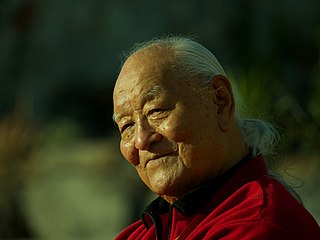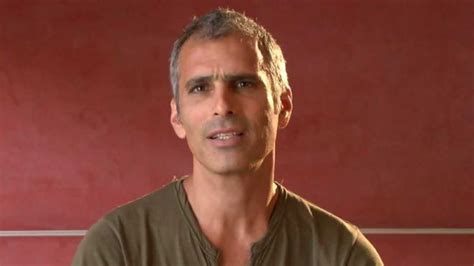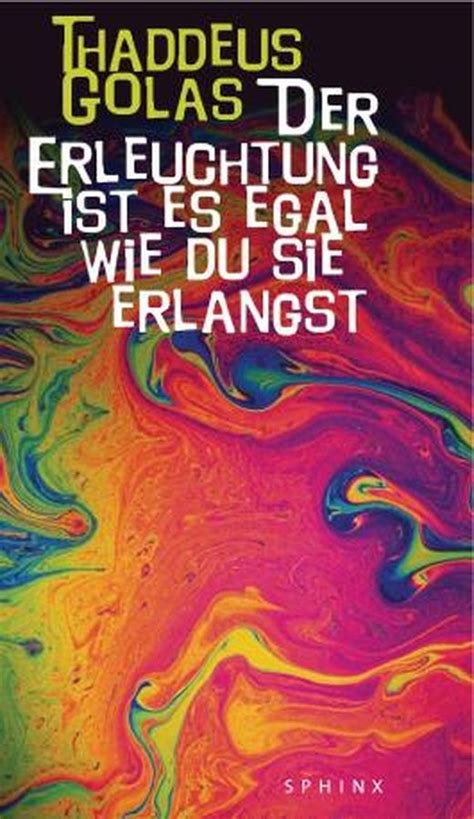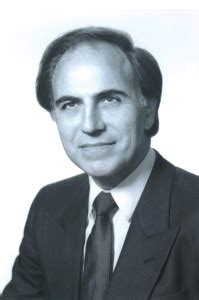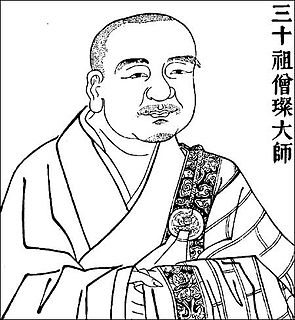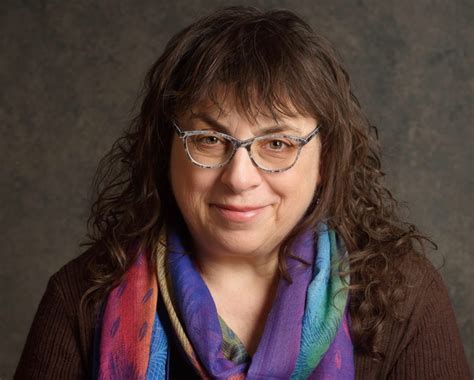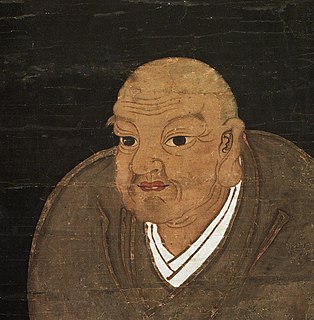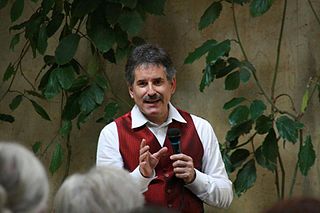Top 1186 Enlightenment Quotes & Sayings - Page 20
Explore popular Enlightenment quotes.
Last updated on December 4, 2024.
I am a child of the Enlightenment. I think irrational belief is a dangerous phenomenon, and I try to consciously avoid irrational belief. On the other hand, I certainly recognize that it's a major phenomenon for people in general, and you can understand why it would be. It does, apparently, provide personal sustenance, but also bonds of association and solidarity and a means for expressing elements of one's personality that are often very valuable elements. To many people it does that. In my view, there's nothing wrong with that.
Since my first discussions of ecological problems with Professor John Day around 1950 and since reading Konrad Lorenz's "King Solomon's Ring," I have become increasingly interested in the study of animals for what they might teach us about man, and the study of man as an animal. I have become increasingly disenchanted with what the thinkers of the so-called Age of Enlightenment tell us about the nature of man, and with what the formal religions and doctrinaire political theorists tell us about the same subject.
Duality is the real root of our suffering and of all our conflicts. All our concepts and beliefs, no matter how profound they may seem, are like nets which trap us in dualism. When we discover our limits we have to try to overcome them, untying ourselves from whatever type of religious, political, or social conviction may contain us. We have to abandon such concepts as 'enlightenment', 'the nature of the mind', and so on, until we no longer neglect to integrate our knowledge with our actual existence.
This is what our yoga practice is trying to accomplish. Not white light descending from heaven and engulfing you, not energy released from the base of your spine going up through your crown chakra so you become a human lightening bolt, not a halo floating on top of your head. Simply heightened states of awareness, enlightenment, becoming more and more aware which gives more and more insight, which brings wisdom and gives choice. With that wisdom and choice, we become the masters of our destiny and at peace in our life.
A fish swims in the ocean, and no matter how far it swims there is no end to the water. A bird flies in the sky, and no matter how far it flies there is no end to the air. However the fish and the bird have never left their elements. Thus each of them totally covers its full range, and each of them totally experiences its realm... Know that water is life and air is life. The bird is life and the fish is life. Life must be the bird and life must be the fish... practice, enlightenment and people are like this.
Forever, reading has been central, the necessary fix, the support system. Her life has been informed by reading. She has read not just for distraction, sustenance, to pass the time, but she has read in a state of primal innocence, reading for enlightenment, for instruction, even. ... She is as much a product of what she has read as of the way in which she has lived; she is like millions of others built by books, for whom books are an essential foodstuff, who could starve without.
All left-wing parties in the highly industrialized countries are at bottom a sham, because they make it their business to fight against something which they do not really wish to destroy. They have internationalist aims, and at the same time they struggle to keep up a standard of life with which those aims are incompatible. We all live by robbing Asiatic coolies, and those of us who are 'enlightened' all maintain that those coolies ought to be set free; but our standard of living, and hence our 'enlightenment,' demands that the robbery shall continue.
[Michael] Chabon, who is himself a brash and playful and ebullient genre-bender, writes about how our idea of what constitutes literary fiction is a very narrow idea that, world-historically, evolved over the last sixty or seventy years or so - that until the rise of that kind of third-person-limited, middle-aged-white-guy-experiencing-enlightenment story as in some way the epitome of literary fiction - before that all kinds of crazy things that we would now define as belonging to genre were part of the literary canon.
One of the greatest things that ever taught me a super lesson was when I seen a baby come out of my woman's womb. Seeing this war that could end with both lives being lost, or both lives being made, gave me an enlightenment of life itself. It sparked my whole mind to a whole other level of living. And if I never would have seen it, I never would have understood life. I never would have appreciated life.
Men naturally rebel against the injustice of which they are victims. Thus, when plunder is organized by law for the profit of those who make the law, all the plundered classes try somehow to enter, by peaceful or revolutionary means, into the making of laws. According to their degree of enlightenment, these plundered classes may propose one of two entirely different purposes when they attempt to attain political power: Either they may wish to stop lawful plunder, or they may wish to share in it.
Anything that really frightens you may contain a clue to enlightenment. It may indicate to you how deeply you are attached to structure, whether mental, physical, or social. Attachment and resistance are appearances with the same root: when you resist by pulling away your awareness, the emotion is one of fear, and the contraction is experienced as a pull like magnetism or gravity; that is, attachment. That is why we often fear to open our minds to more exalted spiritual beings. We think fear is a signal to withdraw, when in fact it is a sign we are already withdrawing too much.
The true Enlightenment thinker, the true rationalist, never wants to talk anyone into anything. No, he does not even want to convince; all the time he is aware that he may be wrong. Above all, he values the intellectual independence of others too highly to want to convince them in important matters. He would much rather invite contradiction, preferably in the form of rational and disciplined criticism. He seeks not to convince but to arouse - to challenge others to form free opinions.
Muhammad brought down from heaven and put into the Koran not religious doctrines only, but political maxims, criminal and civil laws, and scientific theories. The Gospels on the other hand, deal only with the general relations between man and God and between man and man. Beyond that, they teach nothing and do not oblige people to believe anything. That alone, among a thousand reasons, is enough to show that Islam will not be able to hold its power long in ages of enlightenment and democracy, while Christianity is destined to reign in such ages, as in all others.
Ignorance of each other is what has made unity impossible in the past. Therefore we need enlightenment. We need more light about each other. Light creates understanding, understanding creates love, love creates patience, and patience creates unity. Once we have more knowledge (light) about each other, we will stop condemning each other and a United front will be brought about.
There are two visions of America. One precedes our founding fathers and finds its roots in the harshness of our Puritan past. It is very suspicious of freedom, uncomfortable with diversity hostile to science, unfriendly to reason, contemptuous of personal autonomy. It sees America as a religious nation. It views patriotism as allegiance to God. It secretly adores coercion and conformity. Despite our constitution, despite the legacy of the Enlightenment, it appeals to millions of Americans and threatens our freedom.
Unfortunately, the greater consciousness among Whites about Black equality has not carried over to the new victims of racism - Muslims and Immigrants. There is no racial enlightenment for these groups, which are huge. Millions of Muslims and an equal number of immigrants, who whether legal or illegal, face discrimination both legally from the government and extra-legally from White Americans - and sometimes Black and Hispanic Americans. The Democratic Presidential candidates are avoiding these issues in order to cultivate support among White Americans.
To limit yourself to a label of "alcoholic" is masochistic and false if you have awakened a deeper spiritual identity within and have come to know your true self as unconditioned pure awareness. This doesn't mean that recovering alcoholics don't have to be concerned with relapsing, they must always remain vigilant. The power of addiction should not be underestimated. This exercise in vigilance can become a spiritual tool of liberation as well. Always being aware of choosing between real happiness and false happiness is also the discrimination required to attain enlightenment.
All that the posture of skepticism accomplishes is to freeze the ego in an ignorantist poverty that never stretches or diversifies its resources of imagination or understanding. Any uncultured cretin can close his eyes and try to reduce the issues down to linear simplisms and say, "I am doubting, I am proving my magisterial or sovereign control over my own mind." Doubt is a useful and significant test of one's critical powers, but by itself it bears little if any significant cultural charge of enlightenment or satori; indeed it is the very opposite kind of thing.
I think we should be very clear on this. You know, this country was founded on the principles of the Enlightenment... It was the idea that people could talk, reason, have dialogue, discuss the issues. It wasn't founded on the idea that someone would get struck by a divine inspiration and know everything right from wrong. I mean, people who founded this country had religion, they had strong beliefs, but they believed in reason, in dialogue, in civil discourse. We can't lose that in this country. We've got to get it back.
So the most difficult thing is always to keep your beginner's mind. There is no need to have a deep understanding of Zen. Even though you read much Zen literature, you must read each sentence with a fresh mind. You should not say, "I know what Zen is," or "I have attained enlightenment." This is also the real secret of the arts: always be a beginner. Be very very careful about this point. If you start to practice zazen, you will begin to appreciate your beginner's mind. It is the secret of Zen practice.
Growing up, all I saw was my parents trying to be the best people they could be, and people coming to them for wisdom, coming to them for guidance, and them not putting themselves on a pedestal, but literally being face-to-face with these people and saying, "I'm no better than you, but the fact that you're coming to me to reach some sort of enlightenment or to shine a light on something, that makes me feel love and gratitude for you." They always give back what people give to them. And sometimes they keep giving and giving and giving.
Human intellectual progress, such as it has been, results from our long struggle to see things 'as they are,' or in the most universally comprehensible way, and not as projections of our own emotions. Thunder is not a tantrum in the sky, disease is not a divine punishment, and not every death or accident results from witchcraft. What we call the Enlightenment and hold on to only tenuously, by our fingernails, is the slow-dawning understanding that the world is unfolding according to its own inner algorithms of cause and effect, probability and chance, without any regard for human feelings.
If you come across an insane person who's talking gibberish, you can't make any sense of it at all and that would be one way that enlightenment is different. If you read Dogen, a lot of his stuff is very strange and is coming from a different place than what we're used to, but at the same time, it's not senseless ramblings and that's part of what attracted me to Dogen. I didn't get it, but it was sane. It's not some guy raving about UFO's or Moses living in his bathtub, it's was actually something sane that I just didn't get, if that makes sense?
Christianity has held back any further advances in human consciousness for the past thousand years. And for the past century it's been in direct conflict with its illegitimate offspring, Communism (again with a capital C). Both ask the individual to sacrifice his self-interest to the higher goals of the organization. (Which is okay by me as long as it's voluntary; but as soon as either becomes too big - and takes on that damned capital C - they stop asking for cooperation and start demanding it.)
Any higher states of human enlightenment have been sacrificed between these two monoliths.
There is this unbounded, infinite, eternal, level, ocean, within every human being. Inner happiness comes with consciousness, bliss, intelligence comes with it. Creativity, love.
Human beings have a potential and it has names like enlightenment or fulfilment, or liberation.
True happiness is not out there, true happiness lies within.
They say beauty is only skin deep but it's this stuff coming from the inside, absolute vibrant consciousness, absolute bliss
Enlightenment is man's emergence from his self-imposed nonage. Nonage is the inability to use one's own understanding without another's guidance. This nonage is self-imposed if its cause lies not in lack of understanding but in indecision and lack of courage to use one's own mind without another's guidance. Dare to know!
The first who attracts the eye, the first in enlightenment, in power and in happiness, is the white man, the European, man par excellence; below him appear the Negro and the Indian. These two unfortunate races have neither birth, nor face, nor language, nor mores in common; only their misfortunes look alike. Both occupy an equally inferior position in the country that they inhabit; both experience the effects of tyranny; and if their miseries are different, they can accuse the same author for them.
It seems that the more places I see and experience, the bigger I realize the world to be. The more I become aware of, the more I realize how relatively little I know of it, how many places I have still to go, how much more there is to learn. Maybe that's enlightenment enough - to know that there is no final resting place of the mind, no moment of smug clarity. Perhaps wisdom, at least for me, means realizing how small I am, and unwise, and how far I have yet to go.
Even if we profess to be non-judgmental, there's an inherent judgmentality and hierarchy in which the spiritual person, the conscious person, the mindful person, is more developed than the typical truck driver or waitress or heroin addict. This is a red flag, another problem built into the concept of spirituality. The truth is that every person you meet is in some way more developed than you are, and that the multiple modes of development that a human being can pursue require the whole of humanity to pursue. We're in this together. Enlightenment is a collective effort.
To live in the Great Way is neither easy nor difficult, but those with limited views are fearful and irresolute: the faster they hurry, the slower they go, and clinging cannot be limited: even to be attached to the idea of enlightenment is to go astray. Just let things be in their own way and there will be neither coming nor going. Obey the nature of things (your own nature), and you will walk freely and undisturbed.
Martin Swinger is one of those rare singer-songwriters who excels at everything: singing, songwriting, guitar-playing, and being so present with his humor, tenderness, and wild mind that his performances are also deep conversations, soul to soul and heart to heart, about the quirks, surprises, and love that brings us most alive. His songs, ranging from the little plastic parts that hold the world together, to what enlightenment comes from Buddha and Betty Boop falling in love, are whimsically and wisely original and enduring.
Every day, think as you wake up, today I am fortunate to be alive, I have a precious human life, I am not going to waste it. I am going to use all my energies to develop myself, to expand my heart out to others; to achieve enlightenment for the benefit of all beings. I am going to have kind thoughts towards others, I am not going to get angry or think badly about others. I am going to benefit others as much as I can.
The joke of it all is that you are looking from your true nature right now without knowing it. If you would stop being fascinated with the contents of your mind, you would experience what I am saying. Feel your way into what I am saying rather than thinking about it. Only a self-concept looks and longs for God. Drop your self-concept and there is only God meeting God. Enlightenment is the restoration of cosmic humor.
The Vimalakirti Sutra states that, when one seeks the Buddhas' emancipation in the minds of ordinary beings, one finds that ordinary beings are the entities of enlightenment, and that the sufferings of birth and death are nirvana. It also states that, if the minds of living beings are impure, their land is also impure, but if their minds are pure, so is their land. There are not two lands, pure or impure in themselves. The difference lies solely in the good or evil of our minds.
This is our challenge at the beginning of the twenty-first century - we need to find the courage to see our own spiritual yearnings in the biggest possible context, in such a way that is going to compel us to finally transcend our self-concern. We need to find the heart to come together in such a way that will enable us to face the challenges before us. And to do this, we need a new spirituality. We need a new enlightenment.
There is no one way to salvation, whatever the manner in which a man may proceed. All forms and variations are governed by the eternal intelligence of the Universe that enables a man to approach perfection. It may be in the arts of music and painting or it may be in commerce, law, or medicine. It may be in the study of war or the study of peace. Each is as important as any other. Spiritual enlightenment through religious meditation such as Zen or in any other way is as viable and functional as any "Way."... A person should study as they see fit.
The point of recapitulation in the first movement of Beethoven's Ninth Symphony unleashes one of the most horrifyingly violent episodes in the history of music....The point is not to hold up Beethoven as exceptionally monstrous. The Ninth Symphony is probably our most compelling articulation in music of the contradictory impulses that have organized patriarchal culture since the Enlightenment. Moreover, within the parameters of his own musical compositions, he may be heard as enacting a critique of narrative obligations that is...devestating.
... an essential feature of a decent society, and an almost defining feature of a democratic society, is relative equality of outcome - not opportunity, but outcome. Without that you can't seriously talk about a democratic state... These concepts of the common good have a long life. They lie right at the core of classical liberalism, of Enlightenment thinking... Like Aristotle, [Adam] Smith understood that the common good will require substantial intervention to assure lasting prosperity of the poor by distribution of public revenues.
That which especially distinguishes a high order of man from a low order of man, that which constitutes human goodness, human nobleness, is surely not the degree of enlightenment with which men pursue their own advantage; but it is self-forgetfulness; it is self-sacrifice; it is the disregard of personal pleasure, personal indulgence, personal advantage, remote or present, because some other line of conduct is more right.
[Men] prefer the foolish belief and the passions of the earth [to the enlightenment of their souls]. They believe the absurd and shrink from the truth.No, they do not. They are afraid, that is all. And they must remain on earth until they come to the way of leaving it.And how do they leave? How is the ascent made? Must one learn virtue?Here she laughs. You have read too much, and learned too little. Virtue is a road, not a destination. Man cannot be virtuous. Understanding is the goal. When that is achieved, the soul can take wing.
There exists in society a very special class of persons that I have always referred to as the Believers. These are folks who have chosen to accept a certain religion, philosophy, theory, idea or notion and cling to that belief regardless of any evidence that might, for anyone else, bring it into doubt. They are the ones who encourage and support the fanatics and the frauds of any given age. No amount of evidence, no matter how strong, will bring them any enlightenment. They are the sheep who beg to be fleeced and butchered, and who will battle fiercely to preserve their right to be victimized.
If young gentlemen get from their years in college only manliness, esprit de corps, a release of their social gifts, a training ingive and take, a catholic taste in men and the standards of true sportsmen, they have gained much but they have not gained what a college should give them. It should give them insight into the things of the mind and the spiritthe consciousness of having taken on them the vows of true enlightenment and of having undergone the discipline, never to be shaken off, of those who seek wisdom in candor, with faithful labor and travail of spirit.
Adam Smith is an egalitarian, he believed in equality of outcome, not opportunity. He is an enlightenment figure, pre-capitalist. He says, suppose in England, one landowner got most of the land and other people would have nothing to live on. He says it wouldn't matter much, because the rich land owner, by virtue of his sympathy for other people would distribute resources among them, so that by an invisible hand, we would end up with a pretty egalitarian society. That is his conception of human nature.
When we want a cup of tea our main wish is to drink tea, but to fulfill this wish we naturally develop the secondary wish to find a cup. In a similar way, the main wish of those who have great compassion is to protect all living beings from their suffering, but to fulfill this wish they know they must first attain Buddhahood themselves and so they naturally develop the secondary wish to attain enlightenment.
In the past, kong-an (koan) practicing meant checking someone's enlightenment. Now we use kong-ans to make our lives correct. . . . You must use kong-ans to take away your opinions. When you take away your opinions, your mind is clear like space, which means from moment to moment you can reflect any situation and respond correctly and meticulously.


